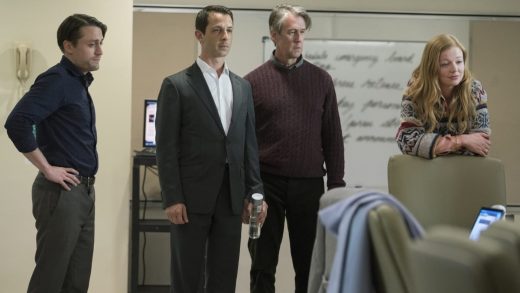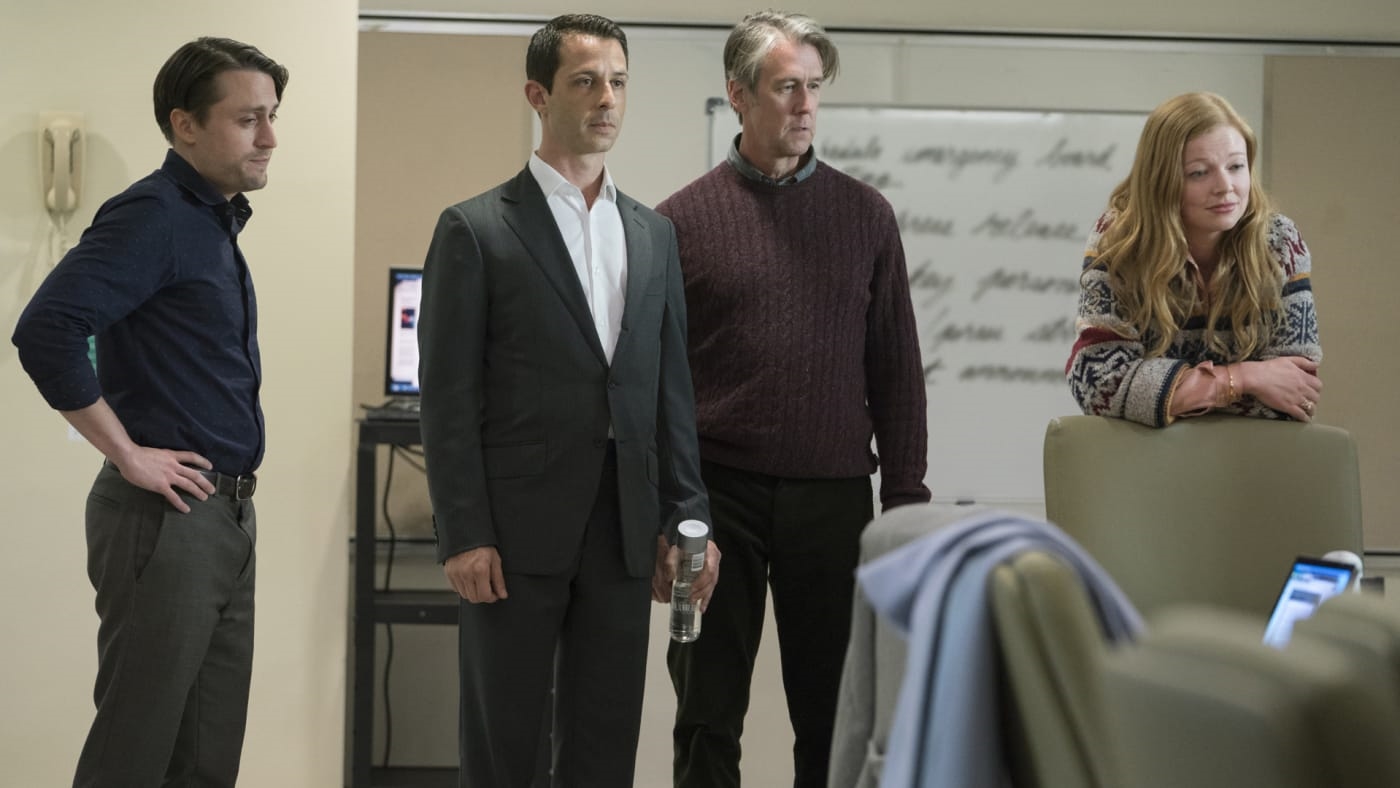HBO’s “Succession” proves the mega rich are just as ridiculous as you
There’s a scene in episode two of HBO’s new show Succession that situates viewers in the world creator Jesse Armstrong set out to make.
Logan Roy (Brian Cox) is in the hospital after suffering from a hemorrhagic stroke, and the fate of his multibillion-dollar corporation is in limbo. His four children, Kendall (Jeremy Strong), Shiv (Sarah Snook), Roman (Kieran Culkin), and Connor (Alan Ruck) are oscillating between genuine concern for their father’s health, and genuine concern for where they’ll land in the pecking order of power. In the midst of alliances and high-stakes decision making, Roman and Shiv get into an argument and have a slap fight. Their father is on the brink of death with his global empire hanging in the balance, and his two very grown and very wealthy children devolve into an adolescent scrap.
That’s the tone of Succession: a dark comedy grafted onto the framework of a Greek tragedy.
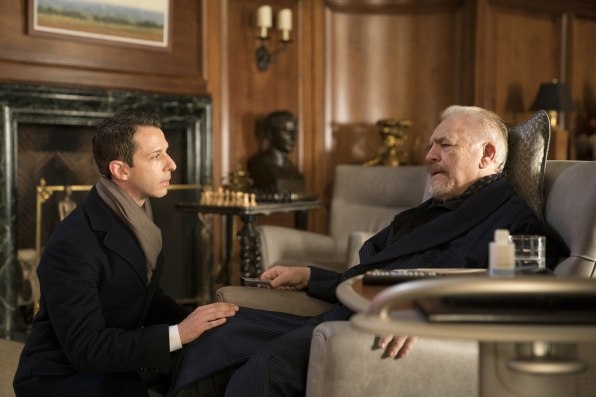
Succession follows the Roys, the family behind one of the biggest media conglomerates in the world. As it often goes when power, money, and family are in the mix, things get personal as the Roy children attempt to wrest control of the company out of their father’s unwilling hands. Succession could have gone the way of a traditional drama, but the tone and how it’s shot take it to a level of storytelling that’s less soap opera and more authentic.
“The key note to me is trying to be true,” Armstrong says. “Especially if you’re writing about rich and powerful people, if you strip away comedy and anything ludicrous, then you give people too much [seriousness]. All powerful people make foolish decisions and end up in humiliating and embarrassing situations, as well as wielding their power. So I feel like you need to include that bit to be true.”
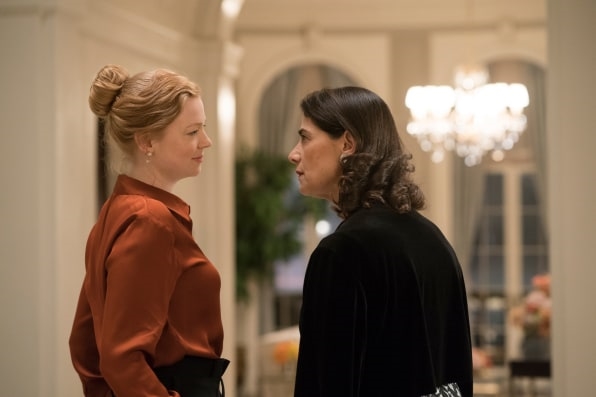
In 2010, a screenplay from Armstrong about media magnate Rupert Murdoch and his family wound up on The Black List, an annual industry survey of the most popular yet unproduced scripts circulating in Hollywood. That script became the inspiration for Succession. The concept of a family jockeying for control of a billion-dollar company could, in essence, fall to a number of industries including banking, tech, etc. However, Armstrong stayed true to Murdoch’s grip on media as the stage for the Roy family drama.
“It’s about the relationship with the media, and how a small number of people and families have such a disproportionate effect on the world we live in,” Armstrong says. “It’s absolutely crucial. I wouldn’t pitch this show about another industry or area.”
What Armstrong was also adamant about was not making a biopic. Even though the Roys may seem loosely based on the Murdochs, he says there was a newfound freedom in not being beholden to the facts of real people’s lives.
“When we did the show, I felt like it was tremendous liberation to cherry pick what we stole from the real world,” he says. “There are loads of great stories, and we were able to go wherever we wanted and give it a narrative shape.”
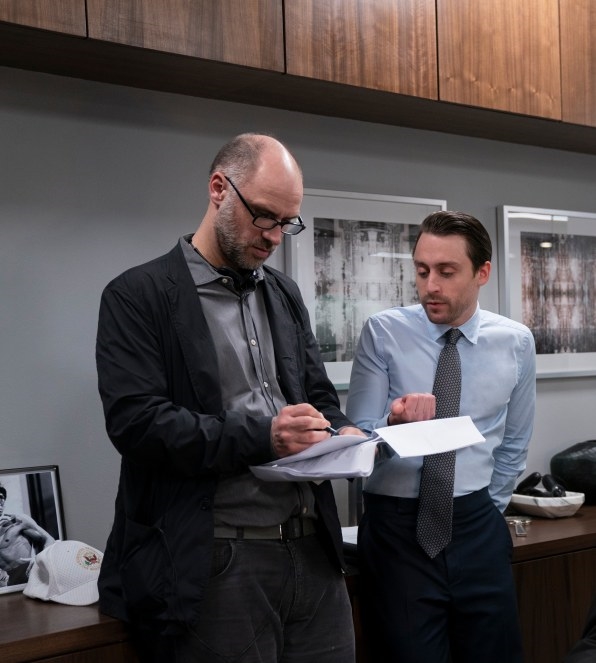
Part of that narrative includes how the show is shot. The documentary-style camerawork on Succession is reminiscent of director and Succession co-executive producer Adam McKay’s Oscar-nominated film The Big Short, as well as previous projects Armstrong has written, including In the Loop and The Thick of It.
“I love it because for me, it feels like you’re inside the world a bit more. The feeling that you’re really in the room is what might give the drama and comedy more piquancy,” Armstrong says. “There’s one episode that is a big Thanksgiving meal, and another that is a charity ball, and being able to cover that in a documentary style gave it that roving sense, that you’re overhearing conversations rather than being presented with them. There’s a sense that you’re absorbing stuff that otherwise would be hidden.”
The run-and-gun approach to shooting helps to strip away the glamour one would expect from a show about a billionaire family. There are indeed the high-rise apartment buildings and luxe events of the super wealthy, but the tone of Succession and the way it’s filmed peel back those layers of opulence in order to dissect something more substantive.
“We talked a lot about family dynamics and birth order and psychology, so anything in that area was interesting to investigate. But we didn’t want it to become–it’s a pejorative term–just a soap opera,” Armstrong says. “If we were doing a story about family psychology, it had to be funny and dramatic and interesting, but also not unconnected to the world.”
Fast Company , Read Full Story
(29)

